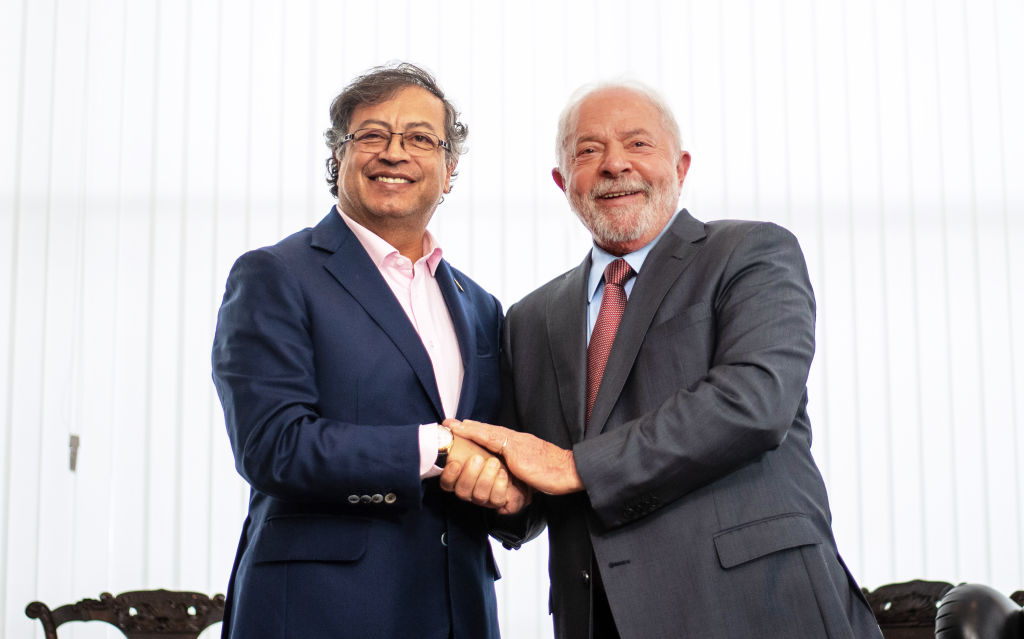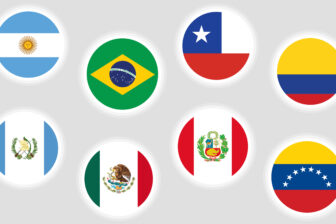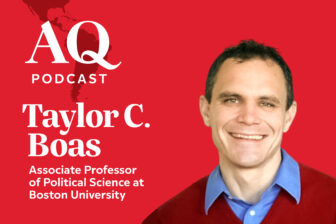Today’s Latin America is seeing a confluence of two trends.
The first is that, with global powers increasingly focused on their own problems and rivalries, Latin American countries enjoy an autonomy to make their own decisions unlike any other moment in recent memory. In this atmosphere of reduced foreign influence (or “meddling,” depending on your point of view), governments in the region have more room for maneuver. This can only be a good thing.
The second trend is that the region is governed by a coalition of leftist leaders who share a common political project. Their main objective is the fight against inequality, and they aim to accomplish this by increasing the strength and resources of the state. Gabriel Boric in Chile, Gustavo Petro in Colombia and perhaps soon Luiz Inácio Lula da Silva in Brazil have been focused on ambitious and progressive tax reforms. The emphasis on growing the state through taxation means that this is not a new vintage of Latin America’s old-style populism.
The new cohort of leaders has formed a coalition, similar in some ways to the original “pink tide” of the 2000s. They not only share a view, but they seek to help each other—just look at their Twitter accounts and the messages they exchange. For example, they have made clear their support for former President Pedro Castillo in Peru. Mexico is offering asylum while Colombia has questioned the legitimacy of the new government. Petro, Colombia’s President, who faced an attempt to kick him out of office when he was mayor of Bogotá, has suggested a two-pronged line of defense that proved effective for him: Invoking the Inter-American Charter while mobilizing supporters in the streets. That example is clearly influencing the approach that Castillo is adopting since his ill-fated attempt to shut down Congress. (Boric’s government was a notable exception in the leftists’ effort to support Castillo.)
This de facto coalition in Latin America wholeheartedly rejects anything reminiscent of the Washington Consensus or neoliberalism. It endorses everything related to “Missions Approach,” the economist Mariana Mazzucato’s framework in which the state sets ambitious goals for the economy. At a time when global conversation is dominated by Russia’s invasion of Ukraine, tensions between China and the United States, and the energy crisis, no one wants to question this change in approach, including the International Monetary Fund (IMF).
This is in part the result of a change in attitude. The U.S. and Europe are now unapologetic about the use of industrial policies, with a much greater role for government in the form of tax credits or direct investment in strategic sectors. But it also reflects a change in views: Latin America is seen as part of the solution to global problems, rather than the problem itself.
Latin America has the food and energy the world needs. It is the only region that can compete with China as a source of the critical minerals that are required for the energy transition. It has the biodiversity that is essential to contain the climate crisis. It has the labor force and the geographic proximity for near-shoring to the U.S. some production processes that relocated to China during the last two decades. But above all, it is a safe and reliable partner that neither has interest nor capabilities to start international wars. This, plus the large number of Free Trade Agreements with the U.S., make it the poster-child of friend-shoring.
The United States knows well that a confrontation with the new Latin American leadership does not bring any benefit. On the contrary, it would have great costs as it would push the region towards a greater alignment with China, which is the last thing it wants. In addition, the U.S. prefers to have allies in the region that help contain the immigration problem, before it reaches the Rio Grande.
In the case of Colombia, the contrast between before and now in terms of Washington’s attitude could not be greater. Not long ago, talks about the need to end the war on drugs, reconsider extradition of Colombian citizens, legalize recreational cannabis or re-establish relations with Venezuela would have been met with a chorus of protest from the White House. But not now. The recent gigantic increase in taxes for mining and oil companies, many of them headquartered in the U.S., does not seem to have made US officials frown either.
Take the issue of critical minerals which is an excellent example of why Latin America is more relevant today than in the past. According to the International Energy Agency, for lithium, cobalt and rare earth elements, the top three producing nations control well over three-quarters of global output (the equivalent figure for oil is less than 40 percent). This concentration is not only high with regards to the production of the primary product, but also in relation to processing operations of such minerals. In particular, China’s share of refining is around 35% for nickel (the figure becomes higher when including the involvement of Chinese companies in Indonesian operations) and as high as 90% for rare earth elements. In the case of lithium processing, China accounts for 58% (while Chile has 29%). JP Morgan expects Argentina to overtake Chile as the second largest lithium producer by 2027.
The recently passed Inflation Reduction Act in the U.S. mandates two sourcing requirements to receive the full clean vehicle credit, starting in 2023. To be eligible for the half of the total possible credit ($3,750 per vehicle), at least 40% of the critical mineral components of the vehicle’s battery must be extracted or processed in the US or a country that is party to a U.S. free trade agreement, or recycled in North America. This minimum threshold will continue to rise in the following years, up to 80% by 2027. To be eligible for the other half of the total possible credit, at least 50% of battery components need to be manufactured in U.S., Mexico, or Canada. The bill wants to deliberately reduce China’s dominance in these products, and in doing so is creating opportunities for Latin America.
But the enhanced strategic weight of Latin America does not automatically translate into greater prosperity. For that to happen, it is necessary that the region adopts the right decisions, chief among them is the need to strengthen democracies. This is particularly true in countries where the legislature does not have the capacity to exercise the necessary checks and balances, and politics are dominated by short-termism.
In addition, difficult times are coming in economic matters. Under these conditions, and with greater autonomy than in the past, the new generation of Latin American leaders will double their bets in terms of their assigning a greater role for the state. There will be no times of moderation, or turns towards the center. On the contrary, there are greater degrees of freedom that will be used to propose increasingly bold reforms. And boldness in areas such as pensions, health and labor markets not only represent risks, but even worse, it can be a source of errors when ideologies and dogmas take control.
Independence and global goodwill are positive assets. Our leaders should use them wisely.
—
Cárdenas is professor of professional practice and director of the MPA in global leadership at Columbia University’s SIPA. He was finance minister of Colombia from 2012 to 2018 and is a member of AQ’s editorial board.








